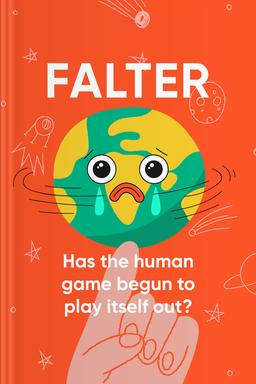Human behavior is a truly fascinating subject, offering valuable revelations into the complex minds and emotions that steer our actions.
The carefully selected roster presented here features the best books for understanding human behavior, providing a wide-ranging glimpse into intriguing ideas, deep studies, and useful methods. Jump in to gain a clearer understanding of the human mind's psychology, from social interactions to cognitive processes, and enhance your personal and professional knowledge.
Explore a variety of viewpoints and research findings, like those in 'Pre-Suasion' by Robert Cialdini, to uncover a wealth of practical wisdom waiting to be discovered. Let's begin your reading adventure today!
Decoding the human operating system: Books about human behavior
This list of books about human behavior is your essential map for figuring out the puzzles of being human. You'll find books that make you think hard about why we often make decisions that do not seem logical, such as 'The Power of Habit' by Charles Duhigg.
Whether you are a learner, a researcher, a manager aiming for better team performance, or just a curious person searching for knowledge, these books have your back with all the key tools to "decode" the complexity of fellow human beings, and most importantly, yourself.
These authors explore the nature of emotions and how strong the influence of modern culture affects how a person may feel and act. For example, Malcolm Gladwell's 'Outliers' tackles the big question of how much our environment shapes success, like solving a social Sudoku.
On a practical note, 'The Anatomy of Peace' by The Arbinger Institute hands you friendly tools to help you stop conflicts cold and grow harmony with the people you care about.
Reading these works by the experts will give you a valuable ability to better grasp and gently guide the actions and reactions of people in your close circle and broader network.
Your brain's instruction manual: Psychology books on human behavior
This special collection of psychology books on human behavior is curated to be your personal course for mastering the mind and its intricate, sometimes unpredictable workings.
We have carefully chosen books that teach you key psychology ideas — like mental errors, group identity, shortcuts for making choices, and how we attach to others — and how to use this knowledge in daily life.
You'll meet current works by the world's most notable psychologists and behavioral scientists, including names like Brené Brown, who wrote 'Atlas of the Heart.' Or Daniel Kahneman and Robert Cialdini, who turned years of difficult studies into simple, applicable wisdom.
Lisa Feldman Barrett's 'How Emotions Are Made' questions common ideas about feelings to supercharge her readers' critical thinking.
The highlighted books also cover crucial and practical skills, such as improving how you communicate with others — like in 'You're Not Listening' by Kate Murphy — and understanding complex social situations. And ultimately, these actions will create much better personal and professional relationships. In fact, this is exactly what 'Attached' by Amir Levine and Rachel Heller suggests, too.
Use this resource to focus your reading on what interests you most — be it social, work-related, or biblical psychology — and build a very solid base in the science of the mind.




